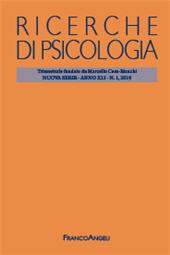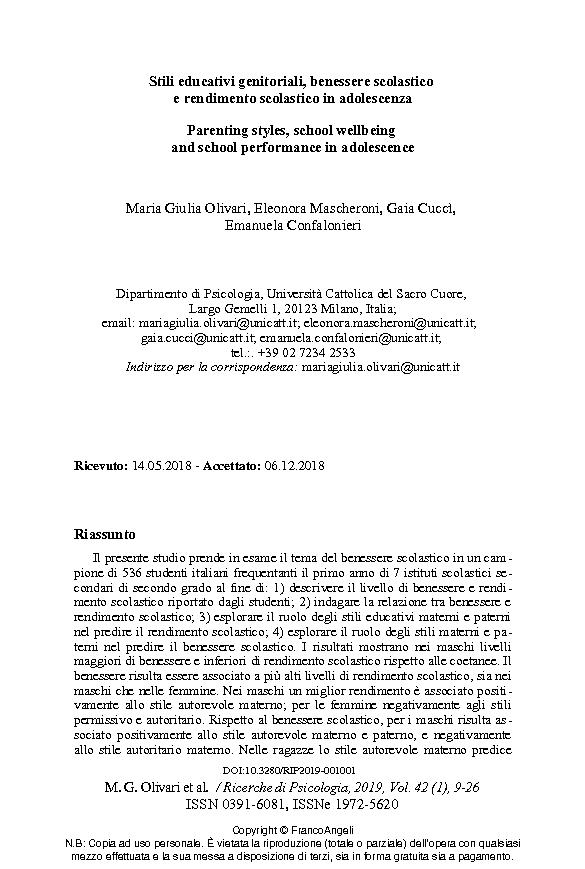Stili educativi genitoriali, benessere scolastico e rendimento scolastico in adolescenza
9-26 p.
Il presente studio prende in esame il tema del benessere scolastico in un campione di 536 studenti italiani frequentanti il primo anno di 7 istituti scolastici secondari di secondo grado al fine di: 1) descrivere il livello di benessere e rendimento scolastico riportato dagli studenti; 2) indagare la relazione tra benessere e rendimento scolastico; 3) esplorare il ruolo degli stili educativi materni e paterni nel predire il rendimento scolastico; 4) esplorare il ruolo degli stili materni e paterni nel predire il benessere scolastico. I risultati mostrano nei maschi livelli maggiori di benessere e inferiori di rendimento scolastico rispetto alle coetanee. Il benessere risulta essere associato a più alti livelli di rendimento scolastico, sia nei maschi che nelle femmine. Nei maschi un miglior rendimento è associato positivamente allo stile autorevole materno; per le femmine negativamente agli stili permissivo e autoritario.
Rispetto al benessere scolastico, per i maschi risulta associato positivamente allo stile autorevole materno e paterno, e negativamente allo stile autoritario materno. Nelle ragazze lo stile autorevole materno predice maggior benessere, mentre gli stili autoritario materno e permissivo materno e paterno risultano associati a minor benessere scolastico. [Testo dell'editore].
This study examines school wellbeing in a sample of 536 students enrolled in the first class of 7 different Italian high school in order to: 1) describe the level of school wellbeing and school performance; 2) investigate the relationship between school wellbeing and school performance; 3) explore the role of maternal and paternal parenting styles in predicting academic achievement; 4) explore the role of maternal and paternal parenting styles in predicting school well-being. Our re-sults indicate that males report higher levels of school wellbeing and lower levels of school performance than females. Wellbeing resulted to be associated to school performance, both among males and females. Among males a better school performance is associated with authoritative maternal style; among fe-males it is negatively associated with permissive and authoritarian styles. As for school wellbeing, for males it is positively associated with authoritative maternal and paternal style.
Among females, authoritative maternal style is associated with higher levels of school wellbeing, while maternal authoritarian style and ma-ternal and paternal permissive style are associated with a lower level of school wellbeing [Publisher's text].
Is part of
Ricerche di psicologia : 1, 2019-
Articles from the same issue (available individually)
-
Information
ISSN: 1972-5620
DISCIPLINES
KEYWORDS
- Adolescenti, stili educativi genitoriali, benessere scolastico, rendimentostico
- Adolescents, parenting styles, school wellbeing, school performance



